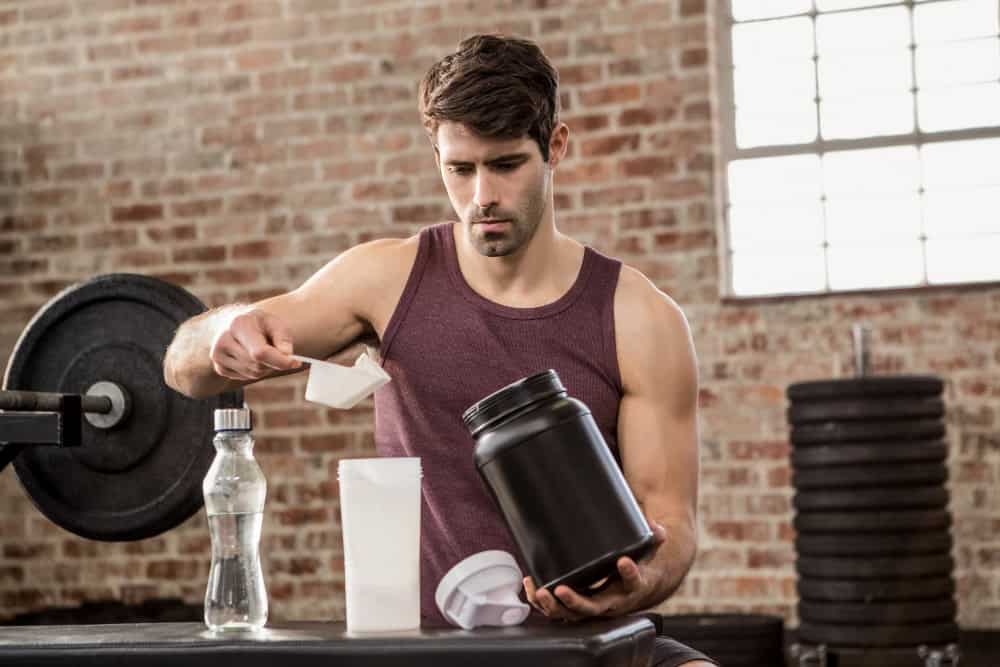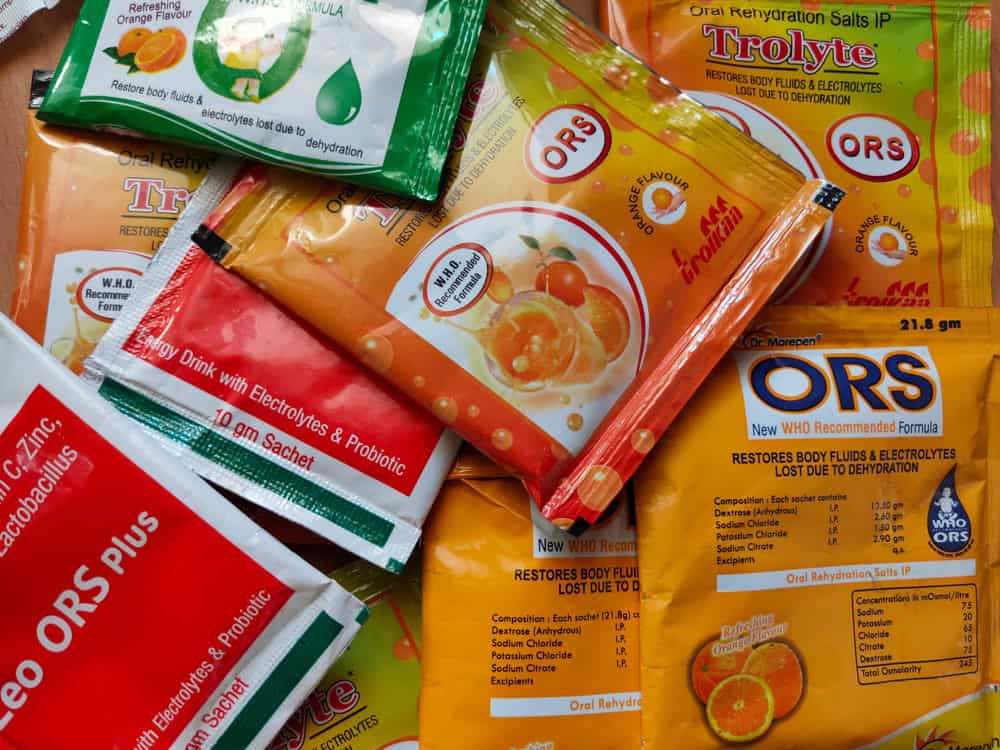
Tired of supplement confusion? You’re not alone. Walk into any fitness store and you’re hit with shelves full of shiny tubs and impossible promises: “burn fat fast,” “build muscle overnight,” “feel superhuman!”
But here’s the truth: most of that is just noise. Most adults take supplements, yet many don’t know which ones actually work.
“Protein and supplements are tools, not magic pills,” says Dr. Sarthak, Allergy Specialist at Tata 1mg, Gurugram. “Rotate sources and use them wisely, especially when your diet or activity level demands it. Without exercise, extra protein may go to waste. Pair smart nutrition with movement, fruits, fiber, and essential nutrients for your body to perform at its best.”
So, we did the homework for you, combing through clinical studies and real medical opinions to find six supplements that do have science behind them. These are the ones doctors trust to genuinely support strength, energy, and recovery.
Let’s cut the fluff and get real.
1. Whey Protein: Your Muscles Best Friend

If you’re serious about fitness, this is your starting point. Whey protein is the go-to for muscle repair and recovery, and for good reason. It’s a “complete protein,” meaning it gives your body all the amino acids it needs to build and repair muscle after workouts.
Why doctors like it:
Whey is quickly absorbed by your muscles, especially after a workout, helping them recover and grow faster. Studies show that taking about 20–25 grams (1-2 capsules) of whey protein within an hour after exercise can speed up recovery, maintain muscle strength, and reduce soreness.
Pro tip:
Go for a whey isolate if you’re lactose-sensitive; it’s purer and easier on digestion.
2. Creatine Monohydrate: The Energy Amplifier

Think of creatine as your body’s natural energy booster. It helps you push harder in your workouts, whether you’re sprinting, lifting, or doing HIIT. It works by refueling your muscles’ ATP, their main energy source.
Why doctors like it:
Over 500 studies show creatine improves strength, power, and endurance. Regular use can increase your lifting performance by 5–15%. It’s also one of the few supplements that’s backed by decades of safe, long-term research.
How to take it:
Just 3–5 grams daily, anytime. Some people like a one-week “loading phase” (20g/day), but it’s optional.
Bonus: It also helps your muscles look fuller since it increases water content inside muscle cells, which is a good thing.
3. Omega-3 Fish Oil: The Recovery Accelerator

After a tough workout, your muscles get inflamed, and that’s normal. But too much inflammation can slow down recovery. That’s where omega-3s come in. Found in fish oil, these healthy fats help reduce soreness and support joint health.
Why doctors like it:
Research shows omega-3s (especially EPA and DHA) help muscles recover faster, reduce post-workout pain, and even improve flexibility.
Best dose:
-2 capsules of 500mg each daily with meals.
-If you’re training intensely or recovering from injury, you can go up to 4–6 grams (with your doctor’s approval).
Pro tip:
Choose a high-quality, purified fish oil with third-party testing to avoid contaminants.
4. Vitamin D: The Strength Builder

Nicknamed the “sunshine vitamin,” Vitamin D does way more than support bone health; it’s crucial for muscle strength, energy, and endurance. Unfortunately, up to 80% of adults (including athletes!) are deficient, especially those who spend most of their time indoors.
Why doctors like it:
Studies show athletes with higher Vitamin D levels jump higher, sprint faster, and have fewer injuries. It also supports immune health and mood, both key for consistent training.
How much to take:
-If you don’t get much sun, 2,000–4,000 IU daily is a safe starting point.
-For best absorption, take it with meals that contain healthy fats (like avocado or olive oil).
5. Electrolytes: The Hydration Heroes

Sweat isn’t just water; it’s a cocktail of sodium, potassium, magnesium, and calcium. These electrolytes keep your muscles firing and nerves working. If you’ve ever felt sluggish or cramped mid-workout, a lack of electrolytes might be why.
Why doctors like it:
Proper hydration keeps your performance steady and helps prevent muscle cramps. It’s especially important during long workouts, outdoor runs, or any session in hot weather.
When to use:
If you’re training for more than an hour, sweating heavily, or exercising in heat, go for 200–300 mg of sodium per hour → typically 2–3 electrolyte capsules or tablets per hour (check product label).
Pro tip:
Skip the sugar-packed sports drinks. Look for clean electrolyte mixes or use coconut water with a pinch of salt.
6. Magnesium: The Recovery and Sleep Supporter

Magnesium is one of those quiet heroes; it doesn’t get much attention, but your body needs it for over 300 essential functions, including energy production and muscle recovery. Many active people are actually low on it.
Why doctors like it:
Magnesium helps reduce soreness, improve sleep quality, and relax muscles. Studies even show it can lower stress and boost next-day performance.
How much to take:
200 mg daily. If indicated, then only 400mg and usually it is available in 200mg form, 100mg capsules are uncommon, preferably before bed for better sleep. Magnesium glycinate or citrate is the easiest on your stomach.
Food fix:-
Dark chocolate, almonds, spinach, and pumpkin seeds are all great sources, too.
The Doctor’s Advice
Supplements can support your training, but they’re not a substitute for real food, rest, or consistency.
Here’s the simple rule doctors stand by:
- Food first, supplements second.
- Eat a balanced diet rich in protein, complex carbs, and healthy fats.
- Stay hydrated.
- Sleep like it’s your job.
Then, if you want an edge, these six science-backed supplements can help you perform better, recover faster, and stay healthy.
Table for a Quick Recap to Understand Better

The Takeaway
Skip the hype. Go for what’s proven.
The best supplement routine is the one that fits you, your goals, your training, and your lifestyle.
Talk to your doctor, pick quality products (look for NSF Certified or Informed Sport labels), and remember, fitness isn’t built overnight. It’s built one smart, consistent choice at a time.
Your strongest self starts here.
FAQs: Supplements Made Simple
-Can I take all six supplements together?
Yes, most people can, but start slowly. Begin with whey and creatine if you’re new, then add omega-3, vitamin D, magnesium, and electrolytes as needed. Always check with your doctor if you have health conditions or take medications.
-Do women need different doses than men?
Not usually. Most doses apply to both sexes, though women may need slightly more magnesium around menstruation. Vitamin D and protein needs can vary by body weight, so tailor accordingly.
-Can I get these nutrients from food alone?
Absolutely! Whey protein helps if your diet is low in protein. Omega-3s come from fatty fish, magnesium from nuts and greens, and vitamin D from sun exposure or fortified foods. Supplements are just a convenient boost.
-Are these supplements safe long-term?
Yes, when taken at recommended doses. Whey, creatine, omega-3, vitamin D, electrolytes, and magnesium all have solid safety records. Avoid mega-doses and monitor any side effects.
-When will I see results?
Consistency matters more than speed. You might notice better recovery and energy in 2–4 weeks, but strength and performance gains build gradually. Think months, not days; patience pays off.
(The article is written by Mantasha, Executive, Clinical Health & Content, and reviewed by Monalisa Deka, Senior Health Content Editor)